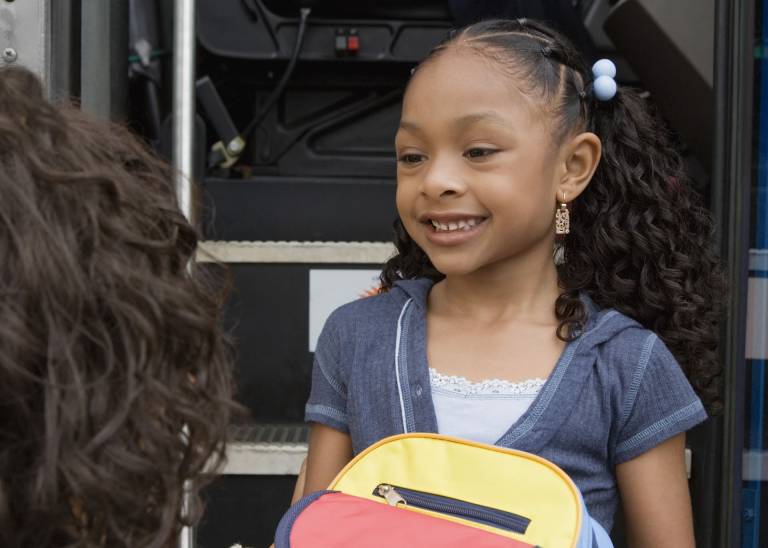The Context
As all educators are very well aware, Ofsted is focusing more on “character education” (the buzz words being ‘resilience‘ and ‘grit‘) when assessing educational institutions. This is because many reports and research link this to higher educational attainment, employment outcomes, and positive mental and physical health. The Education Secretary, Nicky Morgan has suggested that learning traits such as perseverance and confidence were “equally important” to teenagers as gaining good exam results and recently there has been changes in the common inspection framework by Ofsted. The new guidelines state:
· In order for schools to gain a good rating, pupils must enjoy learning about how to stay healthy and about emotional and mental health, safe and positive relationships.
· To be outstanding, schools must enable students to be able to make informed choices about healthy eating, fitness and their emotional and mental well-being.
To be clear on what is good mental health, it is defined as a state of well-being in which every individual realizes his or her own potential, can cope with the normal stresses of life, can work productively and fruitfully, and is able to make a contribution to her or his community. However, recent research has shown a shocking trend in the declining mental well-being of our children and young adults in the UK because of demands or situations which have exceeded their ability to cope or manage (Lazarus and Folkman, 1984):
-
27% UK teens clinically depressed (UNICEF report on Wellbeing – 2007).
-
Among teenagers, rates of depression and anxiety have increased by 70% in the last 25 years (Mental Health Foundation, 2005).
-
Studies show that the majority of mental health disorders in adults has its onset mostly during adolescence (Kessler, et all, 2005).
-
The top ten concerns of adolescents are: school worries, death of loved ones, money, body issues, health, and relationships (Overland, 2010).
In children and young people, these external demands in their daily lives include peer, commercial, social media, education and parental pressure. Sir Anthony Seldon, ex-Head of Wellington College claims “We have a ticking time bomb of mental health issues amongst the young, and schools are still not doing enough.” Seldon believes that “[s]chools should dedicate meaningful time to character-building exercises which can give young people the mental strength they need to cope with the stresses and challenges that come at them from every direction” (Telegraph, 31st Dec 2014).
According to the SalutogenIc Model, ‘mental health [is] a key factor in improving people’s well-being, with an emphasis on changing attitudes, increasing self-knowledge, becoming responsible, and being empowered.’ (Serwacki, M. and Cook-Cottone, C., 2012). Daniel Goleman in his book, The Triple Focus: A New Approach to Education indicates that ‘self-awareness and self-mastery can be made stronger by attention-training exercises [such as Mindfulness]. This skill set – when acquired in childhood – predicts a person’s financial success and health in her 30s better than childhood IQ or socioeconomic status.’ Mental health and well-being is especially crucial in pupils from the ages of 11. This is because their neural networks are still developing at time when emotional regulation is challenging. The growing adolescent brain at this time is highly sensitive to social factors affecting the development of the pre-frontal cortex which controls behaviour. Stress, neglect anxiety and fear results in a reliance on the survival or reptilian part of the brain (‘fight or flight’ syndrome) which leaves less room for cognitive and empathetic development as well as the inability for adolescents to see the results of their own actions. In terms of the endocrinology of teenagers, they are also experiencing powerful hormonal changes as they move into adulthood.
A Whole School Approach to Pupil Mental Health and Well-being – it is up to the institution to have a comprehensive approach to mental health which includes training:
-
Engaging the family – I take my hat off here to the wonderful work of Magna Carta School, and in particular Clare Erasmus who is the Director of Mental Health and Well-being. She has just launched a @family_MH5aday campaign. Check out her twitter account, @cerasmusteach and regular blogs on implementing a variety of whole school approaches to pupil health and well-being, including Yoga and Mindfulness.
-
MHFA for Youth training for Schools and Colleges is a one or half-day course for teaching staff on how to support young people experiencing mental distress. It covers how to spot mental health symptoms, how to administer mental health first aid and the skills of non-judgemental listening.
-
A fully devised pastoral system. Wellington College leads the way in this respect with a programme based on psychological, philosophy and PHSE programmes normally taught in schools. The range of topics in their pastoral system includes physical health, positive relationships, grit, resilience, thinking skills, how to engage, be curious and investigate, living in a consumer society (via a sustainable lifestyle), meaning and purpose in life, restorative justice to tackle bullying and Mindfulness. This is delivered by experienced teaching staff and includes talks by inspirational visiting speakers. Self-written reports by pupils provide feedback on the impact of the programme and to help identify areas for improvement. Mindfulness meditation has been a feature of the programme since 2006 based on scientific interest in how it reduces stress, increases well-being and creativity. Students who are successful and achieve recognition on the programme become ‘Well-Being Champions’ with their own internet page about their particular journey and story. Pupils also get regular emails and grapevine information on the programme’s topic areas such as sleep, diet and resilience. If your school or college is thinking of devising a wellness curriculum, essential reading is Teaching Happiness and Well-being in Schools: Learning to Ride Elephants by Ian Morris, who is the Head of Philosophy, Religion and PSHE, at Wellington College.
-
Social and emotional programmes in Resilience and Mindfulness, for example, Mind with Heart offers training for staff and pupils in Mindfulness based Character education in schools.
-
Yoga in the school sports or extra-curriculum timetable – Yoga is very important as it scaffolds and embodies Mindfulness in terms of mental self-regulation whether to do with food, sleep, emotions, relationships and stress. Being non-competitive, Yoga is particularly attractive to those pupils who perhaps do not like regular team sports and is crucial in tackling childhood and adolescent obesity. However, it is important that the teacher who delivers Yoga is fully accredited to teach below adults. The database for fully qualified teachers who meet this criteria, can be found here.
A Classroom Approach to Pupil Mental Health and Well-being:
-
Have a Care Wall – a colourful display with strategies of the week or day that pupils can take away on specific relaxation techniques, such as Mindfulness, breathing or Yoga poses perhaps taken from the Yoga Pretzel card pack.
-
Set the correct tone at the beginning of the year – ‘I wish my teacher knew’ by @ASTSupportaali. This involves allowing pupils to complete the sentence on what they want their teacher to know about their lives. According to one teacher, it had an immediate, positive impact on the pupils by building a sense of community in the classroom and trust between pupil and teacher. I found in doing this exercise, pupils shared their mental health issues and anxieties in a way that I could truly support them. It also made me a more compassionate and understanding teacher.
-
Encourage Mindful moments and the use of Mindfulness apps such as Stop, Breathe and Think However, it is recommended that as a teacher you have a personal practice before bringing Mindfulness into the classroom. Mindfulteachers.org offers a variety of resources and activities and Mind with Heart offers teacher as well as whole school training.
-
Bring in 5 minute yoga brain breaks into the class to recharge and refocus tired young minds – doing a search online brings up a wealth of ideas you can implement to break up teaching sessions.
-
Most of all, practice teacher self-care. Please check out my previous blog. It is absolutely crucial that when you are performing well, this can only be of benefit to your students.
Tristessa Moore is an ex-teacher and Educational Coach who has worked with the PGCE department at the University of Huddersfield. She is also a trainee Yoga Therapist in physical and mental health, a Yoga and Mindfulness Tutor accredited with TeenYoga UK in schools and colleges, and a Mindfulness Educator working for the international charity, Mind with Heart. She is a registered Sports Coach with Hull City Council and a plenary speaker for MHFA (Mental Health First Aid), and MHFA for Youth across England.





